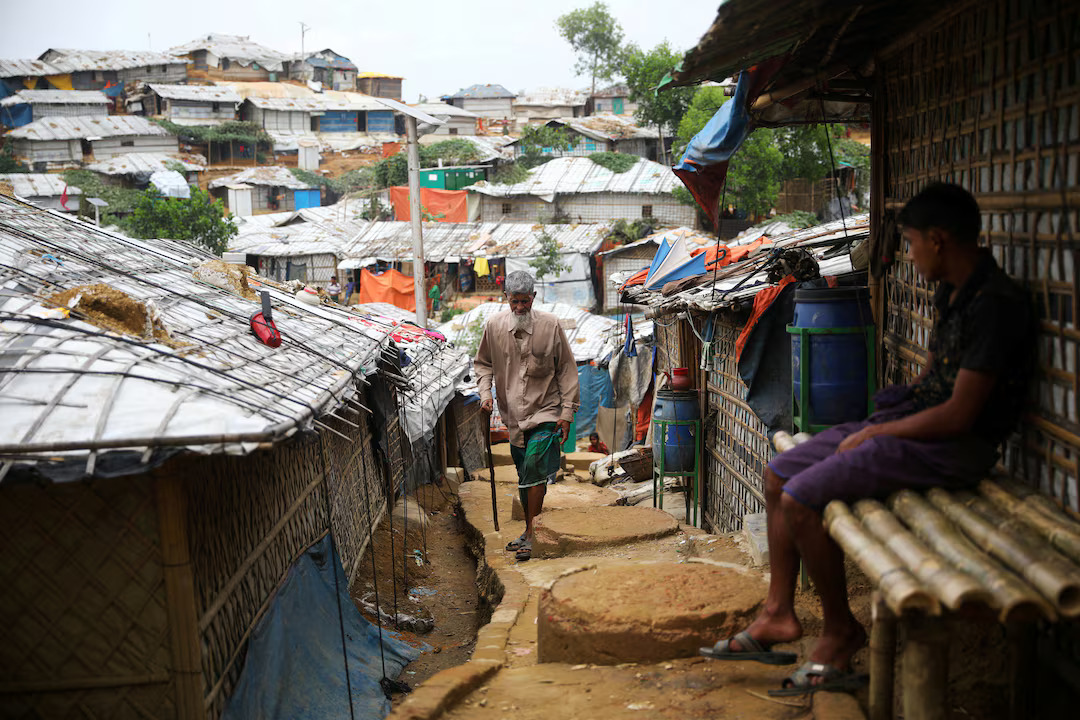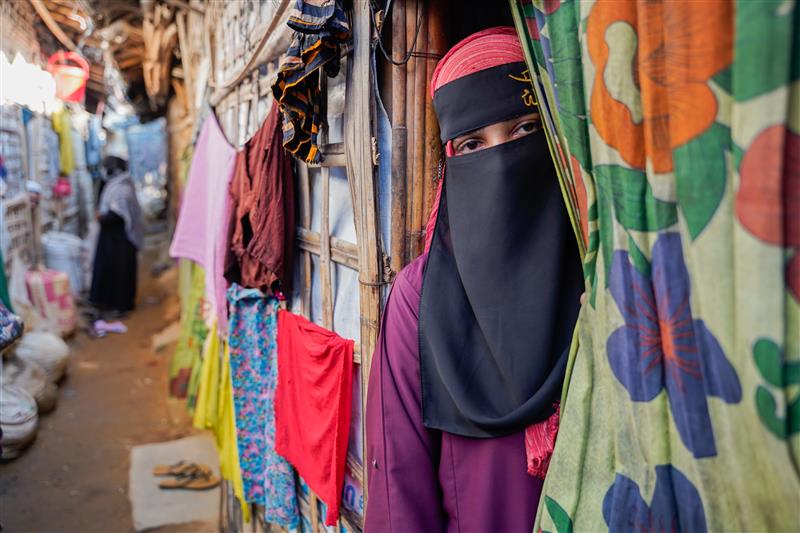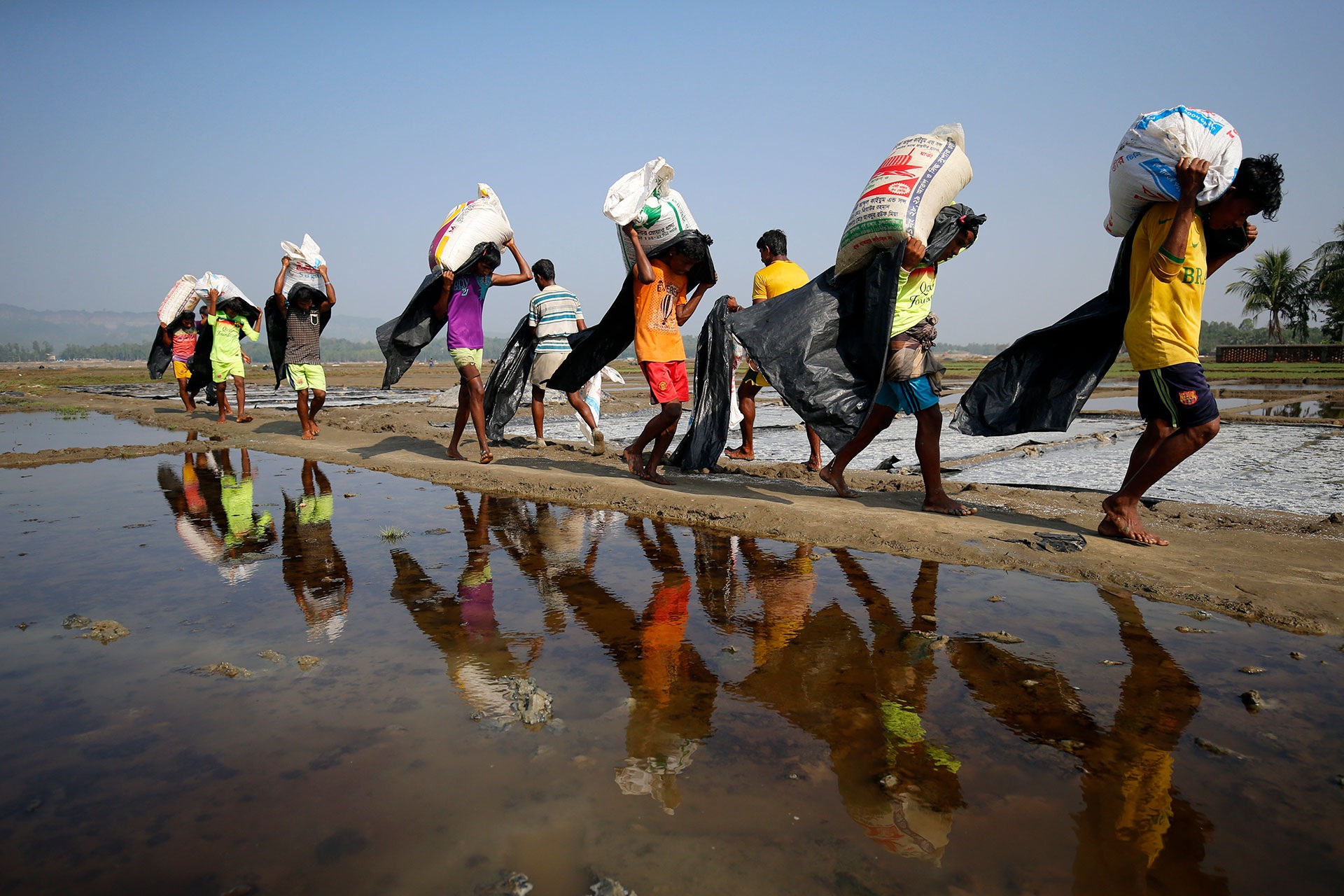Global community too diplomatic to find pragmatic solutions

The High-Level Conference on the Situation of Rohingya Muslims and Other Minorities in Myanmar, held at the UN General Assembly Hall in New York on September 30, has once again confirmed that the Rohingya crisis, now in its eighth year since the 2017 exodus, remains one of the world's most protracted humanitarian tragedies. This was not just another diplomatic gathering, but an event that reaffirmed that the plight of over 10 lakh Rohingya refugees in Cox's Bazar has not been forgotten.
The conference achieved something concrete on the humanitarian front. Both the US and the UK announced fresh aid commitments, with the US pledging $60 million and the UK $36 million.When donor fatigue has become a pressing concern, this renewed commitment is significant. It reinforces the collective resolve to alleviate the immediate suffering of the Rohingya refugees while acknowledging Bangladesh's extraordinary burden as the host.
This conference was the result of consistent diplomatic effort. Bangladesh Chief Adviser Prof Muhammad Yunus, during the 79th UNGA last year, appealed to the global community to sustain focus on the Rohingya crisis. His call bore fruit in the form of this high-level meeting—a clear diplomatic victory for Bangladesh. During his speech in this year's conference, Yunus laid out a seven-point plan to address protection, repatriation, accountability, and sustainable development for the Rohingya.
The conference featured a long list of influential voices: UNGA President Annalena Baerbock, UN High Commissioner for Refugees Filippo Grandi, UN human rights chief Volker Türk, UN Special Envoy Julie Bishop, and representatives of over 20 member-states, including the US, the UK, Germany, Indonesia, and Bangladesh as well as the EU and Organisation of Islamic Cooperation representatives. The National Unity Government of Myanmar, the civilian government ousted by the military junta, was also given the platform to speak.
But silence can speak louder than words. The absence of China, India, Thailand, Malaysia, and Russia was glaring. These are countries that either host Rohingya or other displaced minorities or hold the geopolitical keys to resolving the crisis. Also absent was Myanmar's military junta, the very regime whose actions have forced more than 50 lakh people across Myanmar into displacement.
Many of the speeches were empathetic yet predictably cautious. The EU stressed that "we take a clear stance against measures that could lead to premature repatriation of Rohingya refugees in conditions that are not safe, voluntary, dignified and sustainable." The US reaffirmed its commitment by saying it will continue to stand with the Rohingya refugees and other minorities who have suffered under the Myanmar military. These are welcome words, but they underscore the reality that rhetoric far outweighs enforcement.
Filippo Grandi captured the essence of the problem when he said, "The most important, however, is not to forget that this crisis originates in Myanmar. And that is where the solution lies." The problem is that under the UN Charter, the UN cannot interfere in a sovereign state's internal affairs unless the UN Security Council invokes Chapter VII and declares the situation a threat to international peace and security. But in practice, repeated attempts to pass binding resolutions have been blocked by China and Russia. This leaves the UN confined to humanitarian assistance, advocacy, and documentation—worthy but ultimately insufficient tools.
Listening to the speeches, I could not help but notice the absence of Myanmar's immediate neighbours—India, China, Thailand, and Malaysia, countries that host hundreds of thousands of Rohingya refugees and other displaced minorities. These nations are not passive bystanders; they are active players whose policies shape the lives of Rohingya refugees. Without these regional actors, the conference could reaffirm principles but not chart practical pathways.
Russia's absence was equally significant. Moscow maintains warm ties with Myanmar's military rulers and has consistently wielded its veto to block stronger UNSC measures. For any meaningful progress, the participation or at least the acknowledgement of these actors is essential. Their absence risks reinforcing the perception that the conference was more about moral posturing than actionable diplomacy.
Bangladesh has little room for error. Hosting over 10 lakh refugees has placed immense social, economic and environmental strain, particularly on Cox's Bazar. Yet, Dhaka must tread carefully: any politically insensitive move risks destabilising delicate relations with Myanmar and alienating powerful neighbours. For Bangladesh, this is not just an abstract humanitarian crisis, but also a pressing question of national security, development, and regional diplomacy.
So, what comes next? Will this meeting open new doors to dialogue among Bangladesh, Myanmar, and regional interlocutors? Or will it simply add to the long list of international declarations that never move beyond paper? More than 50 lakh displaced people in Myanmar, including over 10 lakh Rohingya refugees in Bangladesh, are waiting for an answer.
Shaikh Ashraf Ali is a humanitarian policy analyst. He can be reached at ashrafmcj@hotmail.com.
Views expressed in this article are the author's own.
Follow The Daily Star Opinion on Facebook for the latest opinions, commentaries and analyses by experts and professionals. To contribute your article or letter to The Daily Star Opinion, see our guidelines for submission.



 For all latest news, follow The Daily Star's Google News channel.
For all latest news, follow The Daily Star's Google News channel. 


Comments